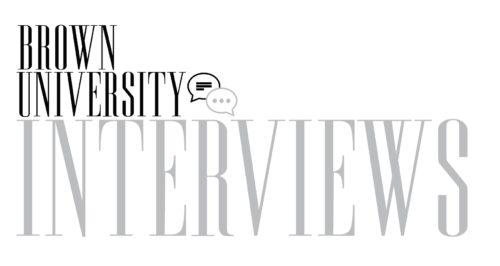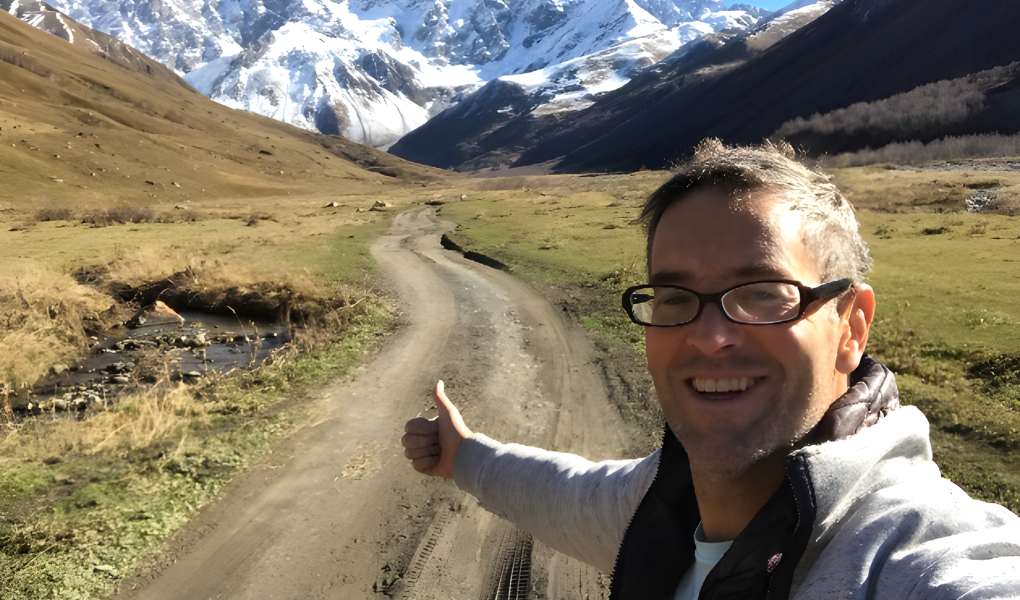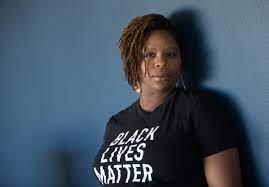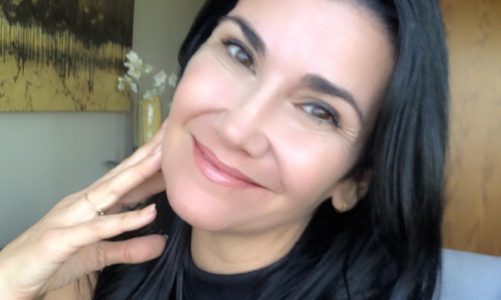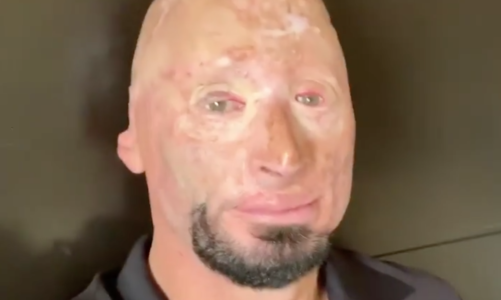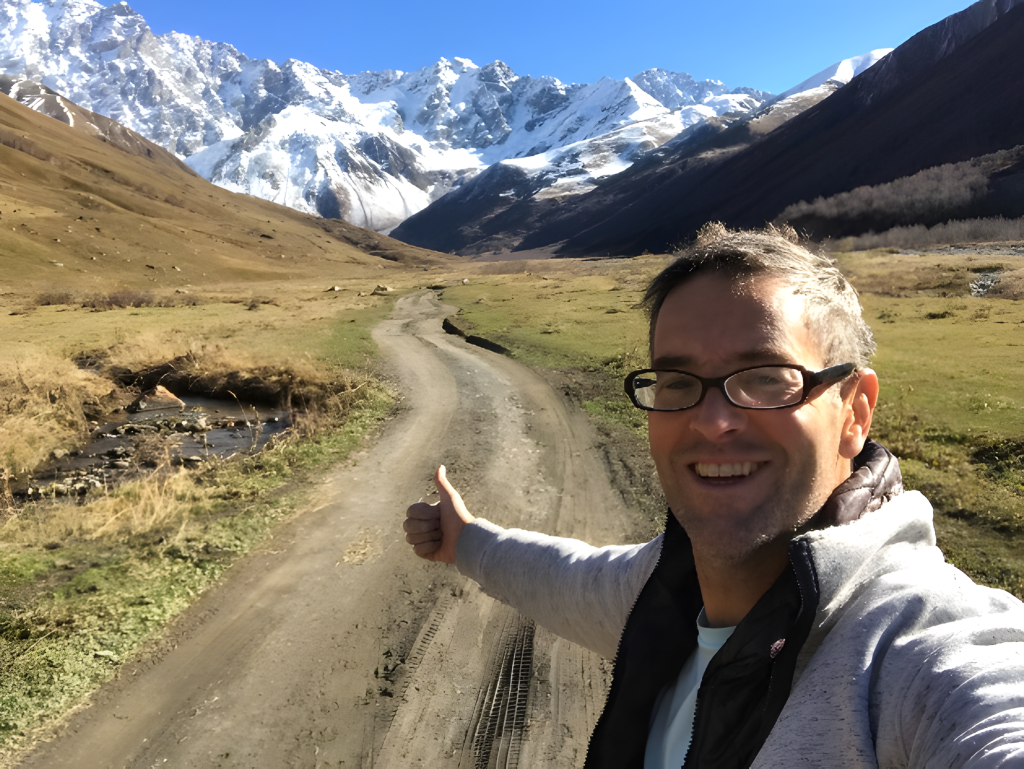
Daniel Mackler is a former psychotherapist of ten years who now produces educational content as a musician, filmmaker, Youtuber, and writer. He regularly posts on his YouTube channel and website, discussing a variety of topics, including healing from past trauma, self-therapy and discovery, and the anti-psychiatry movement. He shares his personal experiences so that others can attempt to heal from childhood trauma and begin this process for themselves. He has authored works, such as Toward Truth and Breaking from Your Parents, and produced documentaries, Open Dialogue and Healing Homes among others. Mackler is also an avid traveler, frequently visiting Africa, Europe, and Asia for the experiences of cultural differences and insight into the self.
In this interview, we discuss his recent travel experiences, attitudes towards confidentiality and relationships, the pursuit of passions in life, and how these topics tie into Mackler’s broader views of personal growth.
Caesar Williams: I heard you just got back from your trip to Gabon in Africa. Do you want to share a little about that? What was your purpose in traveling?
Daniel Mackler: Yes, I went to Gabon and I did a little side trip into the Republic of the Congo. I would call it exploration — exploration, and education because it definitely wasn’t leisure. I mean, I had some fun and I learned a lot. But there was a coup d’etat when I was in Gabon and I was living out in the jungle. I lived in a pygmy village for a while with a pygmy family, and a lot of times, there was no electricity, no running water, no sanitation, and very questionable food of all sorts of varieties. I learned a lot, but I feel it’s also sort of an anthropology at this point.
You say anthropology; are you documenting what’s happening in Gabon?
I document experiences in my journal, yes. But not for any sharing purpose. A lot of times people ask me when I’m traveling, “Are you going to write a book about this?” And pretty much my answer is “No,” especially because when I’m living with people and their families, I see a lot of really private stuff that’s not always positive. I wouldn’t feel right going off and documenting it like an anthropologist. Such as, “Today I saw domestic violence” or “A father is drunk and the kids are being terribly neglected for three days and I have to go out and find food for them,” that kind of stuff. It’s anthropology, but it would just hurt people if I shared it. So, in that way, it’s more for my own learning.
So, building an honest and confidential relationship with these people you meet while traveling is very important to you?
I’m sure people would find it interesting if I shared it. But these are kind people, even if they have problems like everybody does everywhere. These are kind people who welcome me into their lives and trust me, and I don’t want to use them as case studies. I feel a certain responsibility to keep a level of confidentiality. And then, that allows me to feel comfortable going and inserting myself into people’s lives, because when I’m traveling, I really do prefer to live with people. And sometimes I’m straight up asking people, “Can I live in your house? Can I live in your village? Can I camp here? Can I xyz?” And, I think if I knew that I was going to run home and snitch on the dirty things I find, I wouldn’t feel comfortable. I wouldn’t feel ethical inserting myself into their lives in that way. So this way, I go in knowing beforehand that I’m pretty much not going to share much of anything, and then I can stay there and they can be themselves and I can be myself and I don’t feel like anybody is getting harmed. That’s what allows me to feel like it’s okay to do what I do.
As a result, the people were really nice. No one ever tried to bother me or rob me. And it’s like, “Oh my God, Africa, Central Africa, you’re in the middle of a coup d’etat, you’re going to die.” I’m like, no, the people are the nicest thing here, especially the poor people. That’s what I find again and again. The poor people are just pretty much everywhere. They want to protect me. They want to take care of me. People recognize my vulnerability. I don’t know how I got off on this wild tangent but I’ve just gotten home and still, every time I close my eyes, I don’t see America, I see Africa.
That seems to be very similar to how you treat your former clients when discussing topics on your YouTube channel, is that right?
Exactly. I don’t share stuff about my clients from my time as a therapist. Sometimes I do share stuff, but I don’t attach it to specific people or to anybody that’s recognizable, and it’s a conflict that I have because I feel it would benefit people to know. But the other side of it is, “No, I wouldn’t like that if I had been that client. I certainly wouldn’t want anybody sharing that about me.” They didn’t come to me for that. This is private stuff and really strong privacy is what makes the process work for sure.
The main thought I have is, “If it’s that important, let them share.” They’re not bound by confidentiality. They’re paying the money for this service and it’s their life and their privacy, and it’s just not my place to share stuff. And as interesting as it might be, that’s not okay. It’s the same with the people I visit in my travels too. That wouldn’t be okay.
That leads me to some questions about your YouTube channel. How do you feel being on that side of sharing so much about your life for anyone to see online?
I made a choice to share my life experience and trauma, so it’s fair game in the public discourse. I went ahead and made my life public, which I’ve been progressively doing more and more for the last 20 years. That’s my choice, and anybody can do whatever they want with that. It’s a little weird that I’ve done that, I think. It’s not exactly normal and sometimes I have my regrets about having done it, but I’ve done it, and I’ve done it hopefully for the good in spite of it being kind of stressful. But now I get the chance to do things like talk with you, and that’s a privilege for me coming as a result of having been so public about my own life.
Most of your videos contain many comments expressing gratitude and appreciation in response to you being so open about your life and experiences. How do you feel about this praise that comes from opening up your life?
It’s odd for me. When people show how grateful they are, I didn’t expect this. And certainly, when I started being so public, I guess unconsciously, and even consciously, I was hoping that it would really resonate with people, but it wasn’t like it happened right away. So, the more it happened, the more I was like, “Wow, this is kind of awesome.” I still feel that way. It’s a privilege, and it’s special, and I feel like, “Oh, I guess I did do some things right here.” Because a lot of people, especially along the way, have told me, “Don’t do this. This is bad. This is wrong. It’s a problem. You’re sharing so much, and talking about your own life is narcissistic. You sold out your parents, blah, blah, blah, blah, blah.” But I didn’t see it that way, and I still don’t see it that way. And it’s nice to be mirrored by people more and more as time goes on and hear them say, “Wow, this is actually really helpful. Thank you.”
Do you think that this positive feedback is a hopeful sign that more of the population is beginning to look into their unconscious traumas that you primarily talk about on your channel?
I think it is coming. There are a lot of people who watch and comment. I mean, I see the numbers. But also, I know that these ideas are still very uncommon, and even if a video of mine gets a million views, that’s a very small minority of people who are out in the world. I know from my travels, especially when I go to some pretty remote places where the ideas I’m sharing publicly in my videos are not remotely in the public discourse or on people’s minds. And I would say that goes for the far, far, far majority of people in the world, including in my own country, the USA. I still think it’s very rare. But given that there are 8 billion people in the world, even a small minority can add up to a lot of people. And I think that number is changing, and who knows what it will be in 5 or 10 years? So yeah, therefore I would say it is very hopeful.
Do you get the sense that people who see your videos actually integrate your ideas into their everyday lives and take inner healing seriously?
Well, I think it’s pretty uncommon for people to be making really strong, deep progress to integrate the truth of who they are in the deepest core of themselves and really resolving their childhood traumas. And I think that anybody who’s even touching on it is in the process, and I’m in the process of doing it. I don’t know anybody who has fully healed everything and has got all their ducks in a row. But, I also think at the same time everybody knows the world’s in terrible trouble, environmentally and geopolitically. Everybody, everywhere I go, no matter how remote. For instance, I just came out of the jungle of Gabon, and even there, people know that the world’s in horrible trouble, and I think a lot of people, myself included, sometimes don’t quite know what to do about it. But all I know how to do is to keep healing myself on the inside. Being honest, being open, grieving the rotten things that happened to me, doing my best to integrate the best parts of me back into myself, trying to be a good person, sharing, caring, being generous, living my life. Trying to just be an example, as best I can. I really don’t know what else to do, to be honest.
Do you sometimes feel the need to go beyond that because you have built a platform with such potential?
Maybe. I sometimes feel a certain pressure from the outside, and even from the inside, to start groups and start a community and messaging groups and this and that, but I don’t have that in me. And also, when I see people start communities, a lot of times it just seems cultish, so I just get a message out there and live my life. I have a YouTube channel that’s relatively popular, and I don’t put ads on it. For me, that’s an ethical decision. I could probably be making a decent amount of money off of it, but I don’t. And the result of that is that I still have to work, like pretty much everybody else. And I think that’s an advantage in a lot of ways because I was speaking about human problems, the human condition. And I’m right in the middle of it because I’m not rich and sitting back and watching my videos just raking in bucks by having ads that sell products that I don’t believe in.
Sometimes people make it known that they disagree with some of your ideas in the comments of your videos. For instance, a video of yours about skepticism of mysticism in the healing process generated a fair amount of backlash. How do you interpret these criticisms?
It’s not my job to try to convince anybody of that or to fight people out of their ideas. I think of my travels in the world, especially when I go to really remote places. I meet people who believe some pretty unusual things that are part of whatever cultural or religious background they have, things that I just don’t believe and I don’t try to fight people on it. Especially if I’m living on their turf. I try to respect them. For instance, when I was just in Gabon, I was exploring a lot of these caves in the south of the country, and a few times I went with local people to these caves, and they really believe that there are spiritual entities in these caves. They were terrified for me as I started going into them, saying, “Oh, you can die in there, you’ll just drop dead.” I still wanted to go in the caves, but I really restrained myself from going in even though it was fascinating because I just didn’t want to freak them out.
But basically, I just don’t argue with people about religion. It makes me feel sad that some things I say just really rub people the wrong way, but it’s my YouTube channel, so why not share my point of view? That’s what I figure. And I don’t force anybody to watch any of my videos and probably a self-selected group of people who were commenting really just got rubbed the wrong way.
I don’t need people I’m friends with to agree with everything that I say. And that’s ok. I mean, most people I know don’t agree with everything I say and I can still be really good friends with them. I think the world is better with people who think differently.
What advice would you give to students at Brown or elsewhere who are trying to discover their path in life?
I think the guiding light that I’ve followed in my life is to do what I love. I would say the best thing you could do for yourself is really find your passion and honor it. And if you can find classes that overlap with whatever your passion is, all the better.
I ended up studying biology in part because I was interested in it, and in part just because it came very naturally to me. It was easy. And when I think back on it, I’m like, “What would I really study, if I had to do it all over again?” I think I would like to study more history, and I would just pile on the foreign languages, especially the really important world languages since I travel so widely.
I just say follow your passion. Follow your passion, and hopefully, it fits into your class work, and if it doesn’t, then do it outside your class work. That probably goes against what the adults are all saying: “You’ve got to get a technical skill and science and math and fit yourself into some technical boxes so you’ll have a good career.” Well, who the heck really knows what the world is going to be like in 10 or 20 years, to be honest?
How do you think people can focus on these passions without getting bogged down by the stressors of life?
I think every person has to honor their own level of motivation. And, I think there are certainly some good things that are worth avoiding. Like when I hear about people getting lost in porn or smoking weed all the time, they can’t tell me that’s for the greater good. That’s not for the good of their lives. It’s really sad to me. I think about all the people spending all their free time in video games. It’s like living your life chilled on ice.
I’ll just speak for myself because I still feel like there’s a lot of youth left in me, even though I’ve been out of college for practically 30 years. Getting out into the world — living in other cultures, living in other languages, living with people who live in completely different ways — that is motivating. That brings me out of a sense of torpor and laziness. I call it flexibility training. It’s like getting out in the world and just having to do things and live in ways and eat foods and speak languages and do all sorts of things in completely different ways. It’s very stressful, but it’s incredibly motivating.
I feel it’s been to my benefit, based on what I’ve seen of other people who do that. They stay younger, and the mental part of them that’s supposed to get old and dried up doesn’t get old and dry up. I still feel lucky and passionate. I’ve made a lot of mistakes along the way, and I’ve done a lot of dumb things in my life. But I think that was, unfortunately, just an inevitable part of trying new things and taking a lot of risks.
But I think the result of all of this is that some part of me is young and keeps growing, and I feel vital. I don’t feel like I’m one of these people who is in my age cohort and is saying the world is unfair. But I think the main thing is just being a healthier person. And that’s probably the most important thing I’ve ever found. The best thing I got out of anything in my life, more than all the educational stuff and all the external travel, was knowing my inner self and healing the really horrible things that happened to me in my childhood. That is what really set me up to have a good adulthood, first and foremost.
* This interview has been edited for length and clarity.
